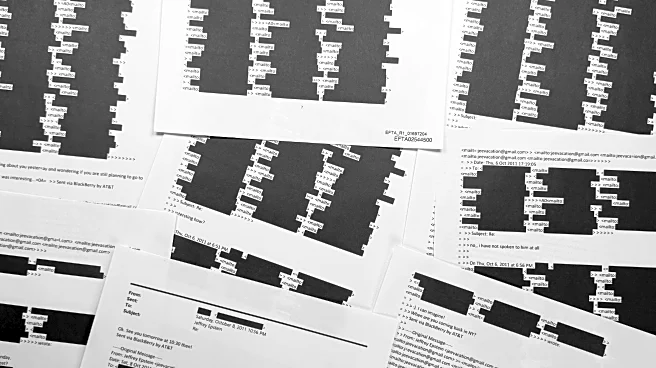What's Happening?
Mortgage rates have decreased to their lowest level in a month, leading to a significant increase in refinance applications. The average contract interest rate for 30-year fixed-rate mortgages with conforming loan balances dropped to 6.37% from 6.42%.
This decline has resulted in a 4% rise in refinance applications over the past week, marking an 81% increase compared to the same period last year. The Mortgage Bankers Association reports that conventional refinances increased by 6%, while FHA refinance applications saw a 12% rise. However, VA refinances decreased by 12%. Despite the drop in rates, applications for purchasing homes fell by 5% during the same period.
Why It's Important?
The decrease in mortgage rates is significant for homeowners looking to refinance, as it offers an opportunity to lower monthly payments. This trend reflects broader economic conditions, where lower interest rates can stimulate refinancing activity but may not necessarily boost home purchasing. The increase in adjustable-rate mortgage applications, which rose by 16%, indicates that borrowers are seeking alternatives to fixed-rate options. This shift could impact the housing market dynamics, influencing lenders and borrowers' strategies. The broader economic implications include potential changes in consumer spending and housing market stability.
What's Next?
If mortgage rates continue to decline, it is likely that refinance applications will keep rising, further impacting the housing market. Lenders may adjust their offerings to cater to the growing demand for refinancing. Additionally, the trend towards adjustable-rate mortgages could lead to changes in lending practices and borrower preferences. Economic stakeholders, including policymakers and financial institutions, will be monitoring these developments closely to assess their impact on the housing market and broader economic conditions.
Beyond the Headlines
The shift in mortgage rates and refinancing demand may have long-term implications for the housing market and economic policy. As borrowers increasingly opt for adjustable-rate mortgages, there could be future risks associated with rate fluctuations. This trend may also influence housing affordability and accessibility, particularly for first-time homebuyers. The broader economic context, including potential inflation and budget deficits, could further affect mortgage rates and refinancing trends.
















